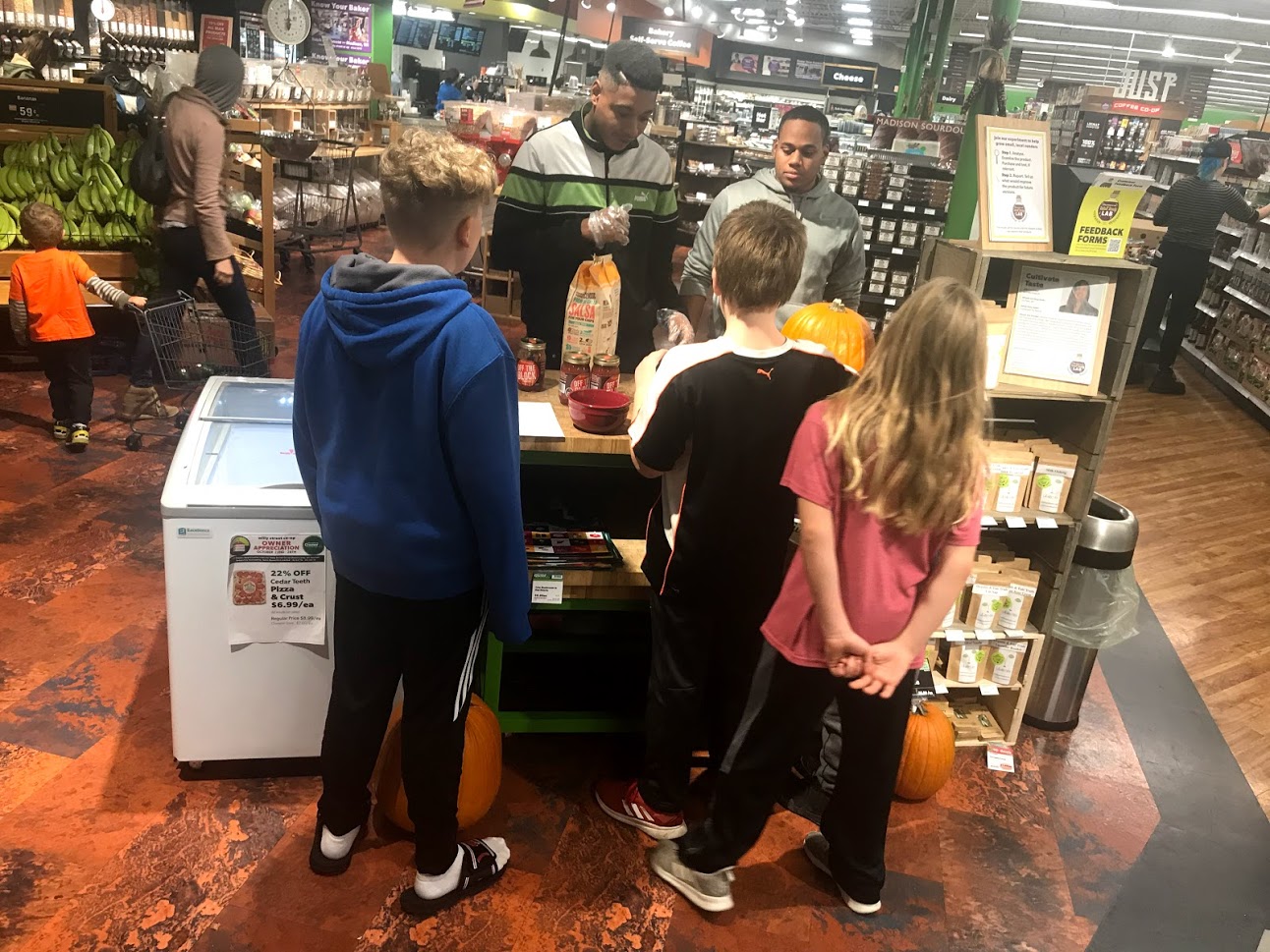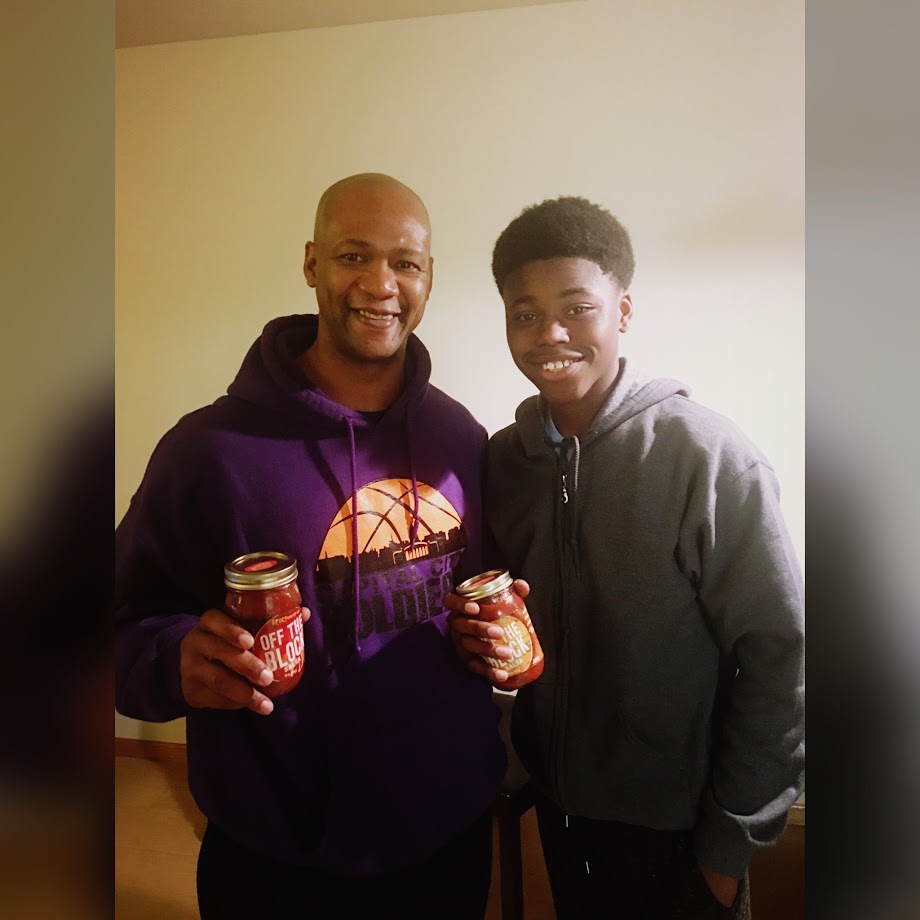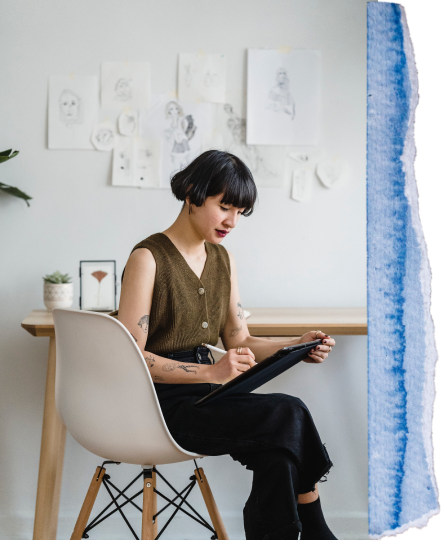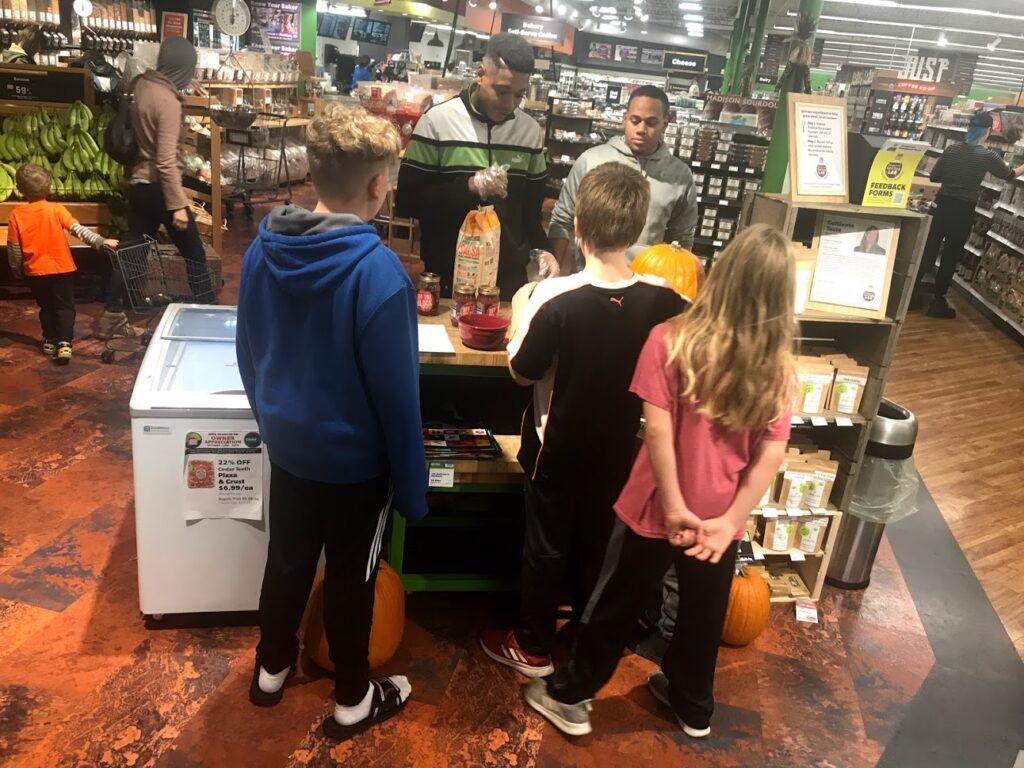Donale Richards is the manager of Off the Block (OTB) Enterprises in Madison, Wisconsin and a 2018 Sustain Dane Live Forward Awardee. In this second part of our conversation, Donale explains his definition of sustainability and his future career aspirations.

You spoke at the 2018 Sustain Dane Summit and defined sustainability as having four main components. You said sustainable organizations are a long-term commitment, build capacity, develop networks, and intersectional. Can you explain how Off the Block Enterprises achieves those four things?
A Long-Term Commitment
Donale: I mostly spoke on the long-term commitment piece because that is what Mentoring Positives does. One of our youth started the program when five years old and now he’s eighteen. Another person in the program started when he was in high school, so around fourteen or fifteen years old, and now he’s twenty and he’s still with us. Will and Becky Green have been in this neighborhood for 14 years.
There have been so many organizations that say they do work in Darbo. They come, but then they go. It tends to be one year long projects, then they get their numbers, and they walk away. Will and Becky have sacrificed so much because they are committed to this work. They understand that in order to build trusting relationships, you need to spend time with people and not just come and go. That’s what speaks to me the most in terms of sustainability because they have been deeply committed for the past fourteen years, but also for the next fourteen years, and even beyond that.
There is actually talk of us expanding and obtaining our own building, but the reality of getting a building in Darbo is pretty challenging because it is only two blocks long. There isn’t much space for a new building. We are looking at our options.
“[Will and Becky Green] understand that in order to build trusting relationships, you need to spend time with people and not just come and go.”
Builds Capacity
Donale: Building capacity is something we are currently doing. Before I came to Mentoring Positives, there were only three to four employees. None of us were full-time. We were all part-time staff. This year, we have gotten funds to build our capacity. The sole focus of funding was so we could build our team. We moved from four part-time staff members to six staff members. Three are full-time and three are part-time.
We also have a lot of partnerships that offer a lot of in-kind services where they will do behind-the-scenes work to help support what we do. Building capacity is something we will continue to work on because we know we need a fully committed team to be able to carry out all of these things that we’re doing.

Develops Networks
Donale: Networking might be the best way to describe Mentoring Positives. If you could see how we obtain funding… I don’t know if there is any other way we could get funding. We do our own direct sales. We do fee-for-service. We have contracts with Dane County Department of Services and the Department of Corrections. We had contracts with Madison School & Community Recreation (MSCR) and we’re working on a contract with Madison Metropolitan School District (MMSD).
Outside of that, we write grants. That’s probably the main way we were getting funding in the past. We are now getting involved with corporate donors who are looking at giving us long-term commitments. We also have a tremendous amount of individual donors who support our programs. You can imagine how many relationships we have to build to be able to get that diverse funding stream.
If you would like to contribute financially to Mentoring Positives, you can donate through their website.
I previously mentioned in-kind services. We work with many departments at University of Wisconsin to keep us connected with resources on campus. At Madison College, we’ve had existing relationships with them that we are looking to strengthen. We also have a pretty deep relationship with Edgewood College. They have at least three classes that have done work for us this year to support different aspects of Mentoring Positives. We have strong support from academic institutions, but we also have very deep relationships with a lot of community-based organizations. We even have relationships with the City of Madison. Before starting Mentoring Positives, Will and Becky Green were social workers. Over time, they were able to build their own relationships that have allowed them to do fee-for-service as they broke off into their own organization.
You could look up Will Green and see a good forty to fifty articles of different things he’s done in the community. He has a strong reputation in this community already. It’s just amazing to think about how much more room he has to connect with even more individuals. I have a deep respect for him. He’s my personal mentor and someone who I aspire to be. I think he has instilled that in a lot of people doing this type of work. There are so many people who appreciate the work Will and Becky Green have done. We have kids who come here and say that when they’re with us, it feels like a family. It feels like a home, somewhere they can feel safe and hopeful.
“We have kids who come here and say that when they’re with us, it feels like a family. It feels like a home, somewhere they can feel safe and hopeful.”

Intersectional
Donale: Everyone who knows Mentoring Positives knows it as a youth mentoring organization, but it’s not just that. We do community engagement. We host community events where we’ll cook for folks if they just want to sit down and eat a nice meal. Sometimes we’ll have events to get feedback on city development plans. We let them know that if they miss the city meetings, we can take their voices into those city meetings. Community engagement is huge in what we do.
We’re in the business realm. We’re in the community realm. We’re working with children and their families. We have a very good understanding that all this work is tied together. If we want to address any issue that we’re facing in society, we need to make better efforts to make sure we’re doing this collectively and hitting all these areas. You can’t make a family better unless you understand some of the fundamental needs they have. Their needs are best communicated when you talk to them with a community-based approach rather than scheduling an ivory-tower kind of meeting. You need to go into the community and talk to them in their spaces. We are trying to model that this is what this work looks like and this is the investment that people need to make. We’re not recreating the wheel. We’re showing people that this is what has been done in the past.
“If we want to address any issue that we’re facing in society, we need to make better efforts to make sure we’re doing this collectively and hitting all these different areas.”
You mentioned that you are working on a couple of other business ideas. Can you tell me about those?
Donale: I got thrown into this position of Off the Block Manager and it’s probably the best thing I could have ever done. I talk about being with the kids and educating them on things I know, but I’m still learning myself. Being at Mentoring Positives is my grad school experience, or my PhD research project. I’m really starting to understand what entrepreneurship looks like. I’m starting to understand licensing, regulations, what the different financial statements you need to have to start a business, what marketing looks like… My education is the business realm is expanding so fast that it’s allowed me to have the confidence to start my own businesses.
One of my biggest interests as I was leaving engineering was climate change and how that is going to impact our natural resources. Food and water are the basics that everyone should have access to. If it were up to me, I would want them to be free but there are a lot of people who say otherwise. What I want to be able to show people is we need to start creating systems that teach people how to do these things for themselves.
I heard about aquaponics and hydroponics and how that is an emerging technology, so I did a little bit more research and I felt like it had been done before. And what do you know… I found that there were a lot of indigenous folks that used these types of systems centuries and centuries ago. Somehow, we lost that information, we lost that knowledge. We commercialized it into this industrial model that we know today. It’s about reinvestigating that could look like in modern day so I’ve done a lot of research into different companies and projects that exist. What I’ve started to learn is that in order to make this feasible to make money, you need to go very, very large scale. I’m trying to figure out how to scale these models to be adjustable so you could put it in your own home or a school-setting or an office building or a restaurant.
My business partner’s uncle had the same interest in exploring what this could look like, so we joined forces and established an LLC called UrbanPonics. We want to develop these technologies so we can have these systems installed in whatever setting people would want. UrbanPonics is also focused on educating people on the fundamental aspects of what hydroponics is. It allows for conversations around these topics that people should be aware of.
My other business is not established yet, but it’s in development. I ultimately want to show people the end product of aquaponics. A restaurant is the ultimate goal. I want to model an urban farm-to-table process showing that the aquaponics business can supply the ingredients for the restaurant. That’s going to show people what sustainability truly looks like if we have these systems working together. I also want to tie in the importance of connecting people with food. This restaurant isn’t just going to serve food. It’s also going to be a space to educate people on different cultures. They can answer questions like: where does this dish come from? Why do we use these spices? Has it been changes over time? Why is that? It will deeply connect people with culture. I want people to know that my culture is diverse. I have a Jamaican father and a Gambian step-father. I have an American mother who lives on the East Coast.
“I want my food to be cheap. I want it to be tasty and I want it to connect people to the cultures that the foods are representing.”
My restaurant is down the road, but right now I’m just trying to develop menu items that relate to the culture. It’s going to mostly Jamaican food, but I also want to show that there is an Afro-Latina heritage to a lot of these foods that we love to eat. I also want this restaurant to be a place for people who love to cook but don’t necessarily know how to get into the restaurant industry to get their start. I would hope that they can go on to start their own restaurants. I want my food to be cheap. I want it to be tasty and I want it to connect people to the cultures that the foods are representing. I know it’s a very ambitious project, but I have the motivation and I have a tremendous amount of support.
[Photos courtesy of Donale Richards]
ROAD to zero waste course




